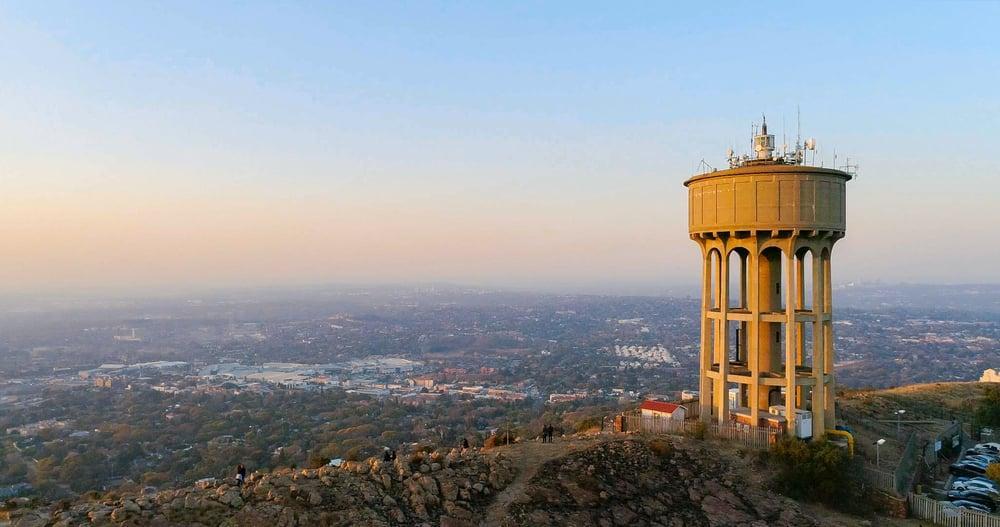Africa-Press – South-Africa. While South Africa’s economic hub, the City of Johannesburg (CoJ), is experiencing serious mounting issues plaguing its water systems, some experts say that reports of an imminent collapse of the city’s entire grid are an “exaggeration”.
Background – Joburg Water’s massive problem
Johannesburg Water’s (JW’s) 2023/24 business plan revealed a R24 billion infrastructure backlog.
Additionally, data shows that JW has been unable to meet the required 1.5% renewal rate of its assets due to funding limitations, leading to a 59% loss in infrastructure value.
This is seen in numerous old, leaking, and broken pipes which have resulted in inconsistent water supply to many areas of the city despite consistent increases tariffs, with Joburg residents recently seeing a 7.7% hike in their water bills.A central factor (although nowhere near the sole reason) given by multiple water infrastructure experts for these fiscal constrains in JW that has led to detrimental underinvestment in the water grid includes the fact that revenue generated by the entity goes straight into the coffers of the CoJ, with only a fraction of the money diverted back into JW.
A recently published investigation said that the “collapse of [Johannesburg’s] water and sanitation grid looks imminent,” as Johannesburg Water does not have the total R64 billion it needs to replace and refurbish old infrastructure over the next 10 years.
Expert analysis
In an interview with Newzroom Afrika, engineer and former Director-General of the then Department of Water Affairs, Professor Mike Muller, said that while various areas across Johannesburg are experiencing severe water issues, it “doesn’t mean that we are going to collapse tomorrow.”
“This idea of a collapse of the [entire] grid I think is a serious exaggeration… it’s election time and you know we’ve got to make the problems look even worse than they are,” said Muller.
This was echoed by Professor Adesola Ilemobade from the Wits School of Civil and Environmental Engineering, who said that “the [entire] grid is not ‘near collapse’ – some sections of the grid are however under stress and prone to collapse if current intermittent water supply continues.“
Ilemobade explained that JW’s infrastructure is made up of many components, including approximately 12,000 km of water pipes, 128 storage facilities, and various water zones.
“While this infrastructure is centrally managed, there are many redundancies in the infrastructure and it is impossible for the entire network to collapse at the same time,” said Ilemobade.
However – numerous factors, including aged infrastructure, sabotage, poor operation and maintenance in various sections/zones across the city, may mean that many of these systems are “vulnerable and prone to collapse,” explained the expert.
Some of Johannesburg Water’s pressing issues
The maintenance, restoration, and upgrading of the city grid’s numerous ailing parts are of critical importance, especially given that numerous areas across Johannesburg are experiencing severe water issues.
Ilemobade said that on top of these restorations, Joburg Water needs to urgently prioritise:
1. Building long-term trust with residents:
“JW could better communicate with its constituency [as] currently, the trust relationship between JW and its constituency is low and deteriorating because the public is left to guess what the state of water supply is,” said Ilemobade.
2. Have cost recovery for water services ring-fenced:
Ilemobade said that “since payments for water services go into the coffers of the CoJ and these monies are disbursed centrally, it disadvantages Johannesburg Water because it is solely dependent on the City for income to undertake its mandate and only receives a fraction of the costs recovered for water services.”
The expert said that if cost recovery for water services are ring-fenced and only available to JW, this may improve infrastructure management and services delivery within the CoJ.
3. Improve water demand management:
Water demand management entails comprehensive reforms and actions to optimise existing water supplies.
It is a long-term, integrated approach to water management that aims to conserve water by controlling use, influencing demand and promoting efficient use through education, awareness, leakage management, and implementing water saving technologies.
Simply, the aim is to minimise loss and waste, to protect the water resources and to use water efficiently and effectively.
This is particularly important, given that a large portion of potable water is lost due to things like leaks.
4. Encourage water conservation initiatives:
Ilemobade said that water conservation remains a key intervention in hopes of having future water security.
This includes having JW educate the public about rainwater harvesting and non-potable water reuse.
“There is ample evidence that shows that rainwater harvesting and greywater reuse can significantly reduce demand for municipal water,” said the expert.
For More News And Analysis About South-Africa Follow Africa-Press






